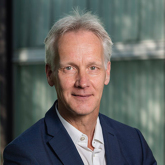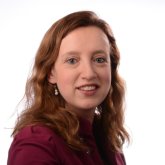Postdoc position: Bridging the dynamic frictional behavior of fault gouges to earthquake ruptures via concurrent multi-scale modeling
We are seeking a full-time postdoctoral researcher with research interests in geomechanics, geophysics, multiphysics, and multi-scale methods (e.g., discrete element method and finite element method) to join the University of Twente (Netherlands). You will work on multi-scale modeling of coupled thermo-hydro-mechanically processes in fault gouges.
The post-doc position is part of the “FastSlip” project funded by the DeepNL programme of the Dutch Research Council (NWO). You will join a multidisciplinary team of leading experts in the fields of Granular Mechanics, Earth sciences, and Tribology from the University of Twente (UT) and Utrecht University (UU).
Background and aim:
The strength of geological faults drastically reduces at near-seismic slip rates, leading to large co-seismic displacements in fault zones. The observed weakening has been attributed to several multiphysical mechanisms, involving rapid frictional heating and temperature change, leading to high pore fluid pressures. While these phenomena originate at the microscale, current earthquake simulators often use continuum approaches, that typically require empirical rate and state friction models, without addressing the discontinuous, coupled multi-physical processes within the fault gouges and their coupling to fault reactivation at the larger length scales.
Accurate prediction of highly dynamic fault slip requires the development of comprehensive and experimentally validated models across different length scales: microscale, where friction between grains generates heat in fault gouges; mesoscale, featuring the fault microstructure, including pore networks that dominate the generation and dissipation of fluid overpressure; and macroscale, where thermal and stress waves attenuate and propagate across multiple faults. Based on the development of predictive models at these scales, a multiscale, multiphysical understanding of fault frictional phenomena will be obtained to help constrain estimates of hazards due to induced seismicity. In particular,
We aim to simulate coupled thermo-hydro-mechanical processes within fault gouges to investigate loading conditions inaccessible in laboratory and upscale their effects on fault reactivation using a concurrent multi-scale modeling approach recently developed at the University of Twente.
Your tasks:
- Extend the multi-scale methods already implemented in the open-source code Kratos Multiphysics from mechanical to coupled thermo-hydro-mechanical problems.
- Implement a thermal-hydro-mechanically coupled discrete element method (DEM) model for dynamic friction phenomena in fault gouges, in collaboration with a PhD student from the Surface Technology and Tribology group at UT.
- Couple the micro-scale (DEM) of the fault gouges and the macro-scale (FEM) models for fault reactivation within the same computational domain, in collaboration with a postdoctoral researcher at UU.
- Compare the simulation results with laboratory data from the High Pressure and Temperature Lab of UU.
Information and application
If interested, please submit your application before 22 November, 2024 via the ‘Apply now’ button, including:
- A motivation letter (no more than 1 A4), explaining your motivation for the application, and why you qualify for this project;
- A detailed Curriculum Vitae, including contact information for two academic references;
- A half A4 page summary of your PhD research;
- A half A4 page summary of your experience and expertise in numerical modeling and simulations;
- Two selected publications.
For more information, contact dr. Hongyang Cheng (h.cheng@utwente.nl) or prof. dr. Vanessa Magnanimo (v. magnanimo@utwente.nl).
The first round of (online) selection interviews are scheduled for the first two weeks of December. A second round of interviews may be scheduled if necessary.
The expected starting date is February 2025.
About the organisation
The Faculty of Engineering Technology (ET) engages in education and research of Mechanical Engineering, Civil Engineering and Industrial Design Engineering. We enable society and industry to innovate and create value using efficient, solid and sustainable technology. We are part of a ‘people-first' university of technology, taking our place as an internationally leading center for smart production, processes and devices in five domains: Health Technology, Maintenance, Smart Regions, Smart Industry and Sustainable Resources. Our faculty is home to about 2,900 Bachelor's and Master's students, 550 employees and 150 PhD candidates. Our educational and research programmes are closely connected with UT research institutes Mesa+ Institute, TechMed Center and Digital Society Institute.





